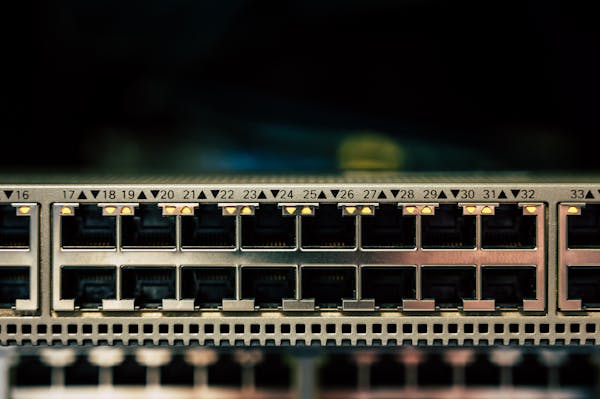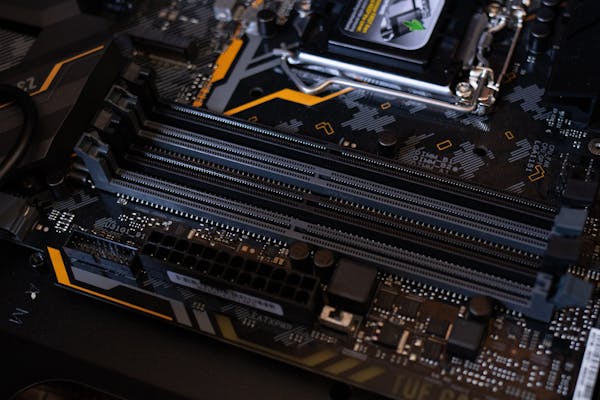Source article: https://heyzine.com/ (4G rotating proxy mobile for sale)

Delving into 4G Rotating Proxies
With the increasing need for online anonymity, mobile 4G proxies have become essential for secure and anonymous browsing.
What Are 4G Rotating Proxies?
4G rotating proxies leverage mobile networks to provide changing IPs to users. Unlike static proxies, they offer dynamic IP rotation, reducing detection risks.
How Do They Work?
Once initiated, users receive a 4G network IP. These IPs change after specific durations or actions, making tracking difficult.
Why Opt for 4G Rotating Proxies
- Increased Security: Dynamic IP rotation prevents tracking.
- Bypassing Geo-Restrictions: Changing IPs facilitate unrestricted browsing.
- Lowered Detection Rates: Frequent IP changes avoid detection systems.
Use Cases for Mobile Proxies
- Web Scraping: Rotating IPs ensure continuous data collection.proxies support multiple profiles.
- Ad Verification: Changing IPs simulate diverse user locations.
- o Consider}
In choosing a proxy service, consider:
- IP Pool Size: A larger pool enhances anonymity.
- IP Change Intervals: Determine if the service offers customizable intervals.
- Geographical Coverage: Access to multiple regions aids in geo-testing.
Limitations to Be Aware Of
- Budget Concerns: 4G proxies often have higher costs compared to other types.
- Connection Stability: Mobile networks might experience fluctuations.
- Ethical and Legal Considerations: Ensure usage respects terms of service.
Summing Up
4G rotating proxies enhance online privacy, establishing their importance in modern internet usage.
Understanding the Inner Workings of Dynamic 4G Proxy Servers
Within the sphere of online anonymity, 4G rotating proxies have become essential components for conducting secure web activities.
Defining 4G Rotating Proxies
These proxies utilize mobile networks to assign dynamic IP addresses to users. Unlike static proxies, they change IP addresses periodically, reducing detection risks.
Operational Dynamics
Once initiated, users receive a 4G network IP. These IPs are switched periodically, preventing consistent monitoring.
Benefits of Mobile 4G Proxies
- Increased Security: Dynamic IP rotation masks real IP addresses.
- Overcoming Location Barriers: Changing IPs enable viewing of geo-blocked sites.
- Minimized Blocking Risks: Frequent IP changes avoid detection systems.
Use Cases for Mobile Proxies
- Information Gathering: Rotating IPs prevent scraping blocks.
- Social Media Management: Dynamic proxies support multiple profiles.
- Marketing Research: Changing IPs monitor competitor strategies.
Selecting a Reliable Provider
When opting for a 4G rotating proxy, consider:
- IP Pool Size: A larger pool enhances anonymity.
- Rotation Frequency: Determine if the service has fixed durations.
- Regional Availability: Access to multiple regions supports diverse tasks.
Potential Challenges
- Budget Concerns: 4G proxies may be pricier compared to other types.
- Network Reliability: Mobile networks might experience fluctuations.
- Ethical and Legal Considerations: Ensure usage respects terms of service.
Final Thoughts
4G rotating proxies provide dynamic IP solutions, making them invaluable in contemporary online activities.
In the modern digital age, remaining private and bypassing restrictions has become more necessary than ever. Affiliate marketers, agencies, and SEOs often rely on proxies to change their IPs. Among these, 4G rotating proxies have become game-changers.
How do they stack up against other proxy types like SOCKS5 proxies? Let’s dive deep.
== What is a 4G Rotating Proxy?
A 4G rotating proxy is a proxy that uses real SIM cards connected to mobile networks. These proxies rotate IPs at custom timeframes or upon request, mimicking human behavior and eliminating the risk of bans or blocks.
== Main Proxy Types
Let’s look at the key proxy types before comparing:
1. **Datacenter Proxies**
– Fast and affordable, but easily detectable.
2. **Residential Proxies**
– Use IPs assigned to real homes. More reliable, but slower and costlier.
3. **4G Mobile Proxies**
– Use real SIMs on LTE networks. Ideal for automation and stealth.
4. **SOCKS5 Proxies**
– Protocol-based, flexible, used for various apps, not just HTTP.
== Comparison Table
| Feature | 4G Rotating Proxies | Datacenter Proxies | Residential Proxies | SOCKS5 Proxies |
|————————|———————|———————|———————|—————-|
| IP Source | Mobile Network (SIM)| Data Centers | Home IPs | Varies |
| Rotation | Yes (Frequent) | Sometimes | Optional | Manual |
| Ban Resistance | High | Low | Medium | Depends |
| Speed | Medium | High | Low-Medium | High |
| Price | High | Low | Medium | Low-Medium |
| Target Use | Social, Ads, Bots | General Scraping | E-commerce, Research| General |
| Block Detection | Low | High | Medium | Medium |
== Technical Advantages of 4G Rotating Proxies
Why are 4G proxies so powerful?
– **Real Device Trust**: Websites trust mobile IPs more than others due to carrier NAT and wide user pools.
– **Shared Reputation**: IPs are shared across many users, making banning a single user risky.
– **Geo-targeted Mobile Carriers**: Rotate between networks in real U.S. cities or countries.
– **Dynamic Rotation**: Can rotate every few minutes or after each request.
– **Bypasses Captchas**: Mobile IPs are less likely to trigger captchas or challenge verifications.
== Where 4G Proxies Win
Let’s be real— if you’re running multiple Instagram accounts, nothing works better than a solid 4G proxy.
– Instagram and TikTok trust mobile IPs.
– Web scraping? You’ll face fewer issues.
– Ads management across banned zones? Done.
== Where They Fall Short
– **Cost**: They’re premium priced.
– **Speed**: Slower than static datacenter options.
– **Limited Threads**: Some providers limit concurrent usage.
== SOCKS5 vs 4G: Protocol vs Behavior
If you need raw protocol-level control, SOCKS5 is your friend. But they don’t rotate IPs on their own.

| Attribute | 4G Proxy | SOCKS5 Proxy |
|———————|——————–|——————–|
| Protocol Type | HTTP/HTTPS | SOCKS5 (All apps) |
| Rotation | Yes | Manual |
| IP Trust Level | Very High | Medium |
| Use Cases | Social, Ads, Bots | Torrenting, Apps |
== Use Cases Side-by-Side
**4G Rotating Proxies:**
– Social Media Management
– Mobile Ad Verification
– SEO Scraping
– Sneaker Bots / E-com Testing
– Marketplace Automation
**Datacenter Proxies:**
– High-volume scraping (non-sensitive)
– Speed-demanding tasks
– Price-conscious campaigns
**Residential Proxies:**
– E-com price intelligence
– Research tools
– CAPTCHA-heavy targets
**SOCKS5 Proxies:**
– Application-level traffic routing
– Anonymity over torrents
– Bypassing firewalls
== How to Choose the Right One?
Not all proxies are created equal. Here’s how to choose:
– Need speed? Go datacenter.
– Need trust and stealth? Go 4G mobile.
– Need app-level routing? Go SOCKS5.
– Need wide IP pools without rotation? Try residential.
== Future of 4G Rotating Proxies
With AI detection systems growing smarter, only mobile proxies are keeping up. We’re seeing:
– 5G proxy rollouts in testing
– Smarter rotation algorithms
– Integration with automation platforms like Jarvee, NextPost, Puppeteer
== Final Verdict
If stealth matters, LTE proxies are your best bet. For any campaign that’s running multiple accounts, it’s worth the investment.
== Spintax Conclusion
So, whether you’re an agency scaling campaigns, investing in the right proxy is not optional anymore.
4G rotating proxies may cost more, but the results speak for themselves.
https://www.fortinet.com/resources/cyberglossary/proxy-server
https://en.wikipedia.org/wiki/Proxy_server
https://support.microsoft.com/en-us/windows/use-a-proxy-server-in-windows-03096c53-0554-4ffe-b6ab-8b1deee8dae1
https://www.reddit.com/r/explainlikeimfive/comments/1dfgepb/eli5_what_is_a_proxy_server_and_why_would_i_as_an/
https://surfshark.com/blog/proxy-server
